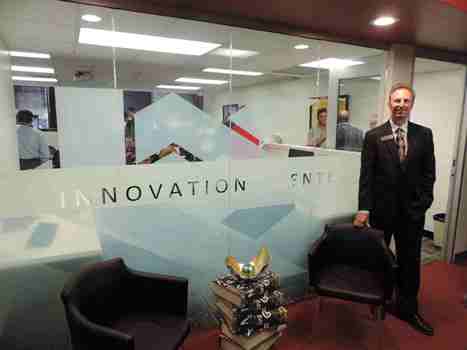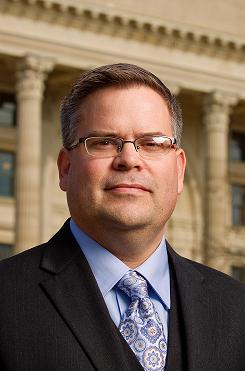
by Kelly Rogge
After months of renovations, Kansas City Kansas Community College is celebrating the opening of its new Innovation Center.
The Innovation Center is a space reserved for students and community members who want to learn about starting a business, get support for their innovation or ideas and dream about their entrepreneurial aspirations.
Located in Room 3619 in the Flint Building on the main KCKCC campus, 7250 State Ave., the space has multiple uses including a computer lab, conference space and an office space with smart board and data projection capabilities.
“Individuals using the space will benefit from support through consultation with faculty, staff and community experts,” said Marvin Hunt, dean of the business and continuing education department at KCKCC. “Setting aside a space for creativity and innovation activities aligns with KCKCC’s emerging entrepreneurial image in the greater community. I hope that the innovations that are born or grow in this space will surprise me and help me learn new ways in which individuals benefit.”
KCKCC held a ribbon-cutting and grand opening celebration Aug. 27 where members of the community as well as KCKCC students, staff and faculty were welcomed to look inside the Innovation Center to see what the space has to offer.
Hunt said one of the training and consultation opportunities the center will be holding is for startup businesses through the college’s affiliations with the Kansas Small Business Development Center, the Kauffman Foundation and the National Association of Community College Entrepreneurs.
“Workforce grows because new businesses are born and succeed. We want to contribute to this growth,” he said. “We will engage in development of new or midstream businesses, tech businesses and main street-lifestyle businesses. Also, I am very interested in learning more about how we can help people protect their intellectual innovations which power their business ventures.”
Hunt said the center started as a dream and a vision from KCKCC’s workforce team. He said the idea is to shift the focus toward entrepreneurism, along with a training competent.
The renovations were funded by a $40,000 grant from the Sunderland Foundation the center received in December 2013. The foundation was started in 1945 by Lester T. Sunderland, focusing on supporting brick and mortar projects.
Over the years, it has awarded numerous grants to nonprofits in the Kansas City region including the Kansas City Zoo, the University of Kansas Hospital Cancer Center, Kansas City Public Television, the Nelson Gallery Foundation and Cristo Rey Kansas City High School.
“We visited with other higher education institutions to learn how they were developing their programming. The first Innovation Summit in 2012 started some movement in this direction,” he said. “We created the Innovation Center and designed and funded Innovation Niches (the nice furniture for students you see in the hallway outside of the Business Division). Then we attained funding through the Sunderland Foundation to remodel the center as it stands today.”
Hunt said the Innovation Center will help KCKCC adapt to the needs of the community while also pushing the boundaries of higher education. He said by dedicating resources to the center, KCKCC is supporting those students and community members who wish to grow their ideas into a sustainable business.
“I find that when I ask our students how many of them want to be their own boss or own their own business, many hands in the room fly into the air. I believe that people thrive when they create. The yearning to own the idea, be autonomic, be your own boss, and see your baby grow, is at the heart of the need for our community,” Hunt said. “I want to see a very active entrepreneurial community in which people are freely sharing innovations, supporting each other’s growth, and finding the resources with our help. Also, I want to create deeper agreements with partners who will create additional pathways and resources for our clients, partners, and students.”
For more information on the Innovation Center, contact Hunt at 913-288-7659 or by email at mhunt@kckcc.edu.

